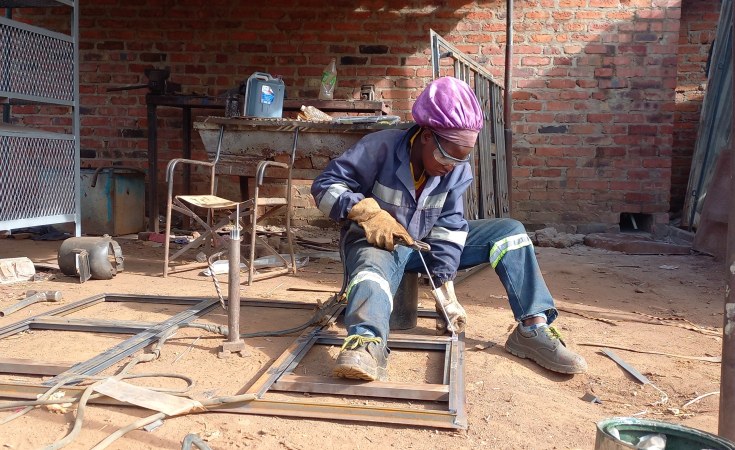Harare — As we mark international women's history month, we assess our progress toward achieving gender equality, a basic human right and the cornerstone of a peaceful, prosperous, and sustainable world. Despite efforts by the global community, gender stereotyping and employment barriers continue to affect millions of young women around the world.
According to the most recent projections from the United Nations (UN), achieving complete gender equality will take 300 more years if we continue on our present course. In the midst of cascading crises, from the war in Ukraine to the climate emergency, women and girls are affected first and worst.
A woman or girl is killed by a relative or close friend every ten minutes while one woman dies during pregnancy or childbirth every two minutes, the UN says. The majority of those fatalities is avoidable.
In September 2020, the Beijing Declaration and Platform for Action for women's rights celebrated its 25th anniversary. It was a bittersweet celebration, mixing pride in the advancements made in gender equity since 1995 with the sobering awareness of the numerous gaps that still need to be closed, and the new divides brought by the social consequences of Covid-19, Giulia Ribeiro Barao and Bosen Lily Liu wrote.
In 2021, UNESCO said 11 million girls were at risk of not returning to school after the education interruptions caused by the pandemic. Even though institutions were unable to hold classes, innovative learning practices, including distance and online education, emerged. But it was not an equal reality for marginalized social groups, over-represented in the offline population, including girls and women, and especially those living in poverty and rural communities.
The Covid-19 pandemic has, however, hastened generational shifts as even more women enter previously male-dominated fields. In Harare, Zimbabwe, women like 23-year-old Ashley Farakeza face a number of barriers to their education - poverty, child marriage, and strict gender roles. In fact, child marriage remains widespread in Zimbabwe, with one woman out of three married before the age of 18.
"I did my O levels at Dzivarasekwa High 1 School. I failed but I wanted to write again. Unfortunately I couldn't continue because the money wasn't there," she said.
With support from Mavambo Children Vana Programme, Farakeza is defying the odds and making it possible for other girls in the community to challenge the norm.
Born and raised in Dzivarasekwa, Harare, Farakeza could not get a formal education because her parents couldn't afford to pay her school fees, but she received help from the Mavambo Children Vana project funded by USAID. Run by AIDS Counselling Trust and its sub-partner, Mavambo Orphan Care, the project's overall goal is to lessen the impact of HIV and Aids on Zimbabwe's vulnerable children by enhancing the sustainability of care and support services for orphans and vulnerable children.
"I couldn't believe it when they approached me. But at that moment I knew I could still do something meaningful with my life," she said.
Farakeza was offered a welding apprenticeship, a program in which an individual works with a professional welder to learn the necessary skills. The professional welder trains, supervises and mentors their apprentice, who learns how to follow safety practices, handle welding equipment, read blueprints and practice welding techniques.
Since then, she hasn't looked back. She started her six-month long course in May 2021 and graduated in November 2021. After her graduation, her instructor, Misheck Muzondo of Window House Welders offered her a job, and she's worked there ever since. Now she can make window frames, door frames, and does painting and grinding. In the future she hopes to write her O levels again and go to college and study boiler making at one of Zimbabwe's engineering colleges. She also looks forward to opening her own workshop someday.
"It was difficult at first, but with time it all became easier. Right now I can tell you that I enjoy what I do."
However, funding has remained a stumbling block.
"If only I could get money for fees or to get my own equipment, it would make it easier for me to excel," said Farakeza. She also wants to serve as a role model, and motivate the girls in her community to stay in school and to pursue their dreams.
"I really love motivating young girls and show them that there's no men's job. With enough effort and sacrifice, anyone can get any skill and be good at it," she said, thanking the AIDS Counselling Trust and Mavambo Orphan Care for giving young women like her a chance at life.
"All this wouldn't be possible if it wasn't for the programme and Window House Welders who keep encouraging us to get skills that help prevent a lot of girls and young women to believe in ourselves and not indulge in drugs or dropping out of school."
She is a single mother of a three-year-old boy, who she says is her motivation to keep going.
To those that may want to help her realize her dreams, you can find her on social media.


